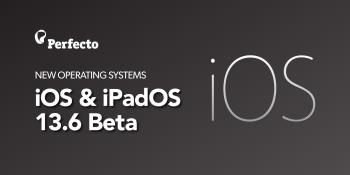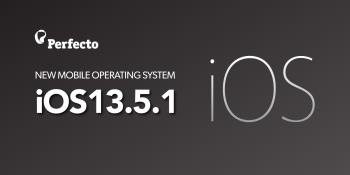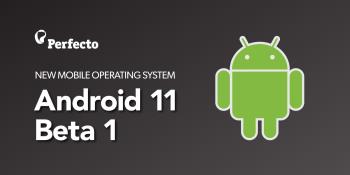Repository management
Added support for repository management under Assets and Setup. The Perfecto Repository is the storage where you keep and manage all your digital assets, such as Android and iOS apps, images, audio files, scripts, or any other files you may need for testing purposes. In the Repository management view, you can upload, download, and delete files, search for files, or modify file information.
The repository has a flat structure. It does not include any folders or subfolders. If you need to distinguish between files that have the same filename, you can change the file name. If you need to keep the file name, you can change the locator, which essentially serves as a virtual path. The locator is the file path that is included in your automation code and API calls. If you migrated from a repository in the legacy Perfecto UI, the locator also represents the former folder structure or hierarchy. It allows you to find files that once used to reside in the same folder.
You can keep files private, make them publicly available, or give access permission to people in your group.
Watch this short video to see how it works.
For more information, see our repository management documentation.
Botium integration
Perfecto now integrates with Botium, an automation testing tool for chatbots using APIs. Botium also provides management tools with out-of-the-box test environments and test sets. By integrating Botium with Perfecto, you can run your Botium tests in the Perfecto lab. Watch this short video to see how it works.
For step-by-step integration instructions, see our Botium documentation.
Device and app vitals
Added support for collecting device and application vitals in the Manual Testing view. The vitals feature collects useful performance data for an open device (default) or the selected application (not supported by all devices), in real-time. If you have several devices open, you can collect vitals for each of them. For each device, the vitals feature collects the vitals that the specific device supports.
You can view this information in the UI or download it as a .csv file for use in any spreadsheet program, such as Microsoft Excel. Performance data includes network, CPU, and memory usage (model specific), all of which measure the general performance of the device or the application and determine how efficiently an application uses resources.
Watch this short video to see how it works.
For more information, see our vitals documentation.
Testing on emulators
Added support for testing on emulators. Emulators are virtual devices that simulate the hardware and software of Android devices on your computer. They are great for lightweight and early testing when you need to get started and receive quick feedback. Emulators create an operating environment that looks and functions much like the mobile device model, providing almost all of the capabilities of a real Android device. This includes the simulation of incoming phone calls and text messages, location services, various network speeds, device orientation/rotation, and different hardware sensors.
Testing your app on emulators may be faster and easier than doing so on a physical device, for example because it is faster to transfer data to the emulator than to a device connected over USB. However, as your app matures and you proceed in the development and testing cycle, you will also want to test on real devices under real-world user conditions, with real gestures, and for the most accurate performance load results.
Watch this short video to see how testing with emulators in Perfecto works.
For more information, see our emulators documentation.
Browser support
Support for the following browsers is now available:
- Mozilla Firefox 77 GA and 78 Beta
- Google Chrome 84 Beta
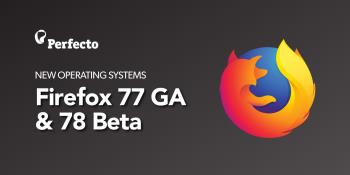
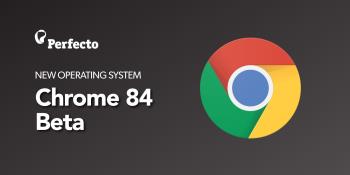
Support for device platforms
Support for the following device platforms is now available:
- iOS and iPadOS 13.6 Beta and 13.5.1 GA
- Android 11 Beta, with the known limitation of secure screens
